
I am Jef Spaleta
*This is a personal post, and it represents my own personal views, and not necessarily the views of my employer, Canonical, or any of my colleagues*.
Life is a revolving door. Inside it’s spinning aperture enter good decisions and bad decisions. What you see when you depart that majestic pirouette often differs to what you expected.
Throughout my career, and through fortitude, pluck and purpose I have made some good decisions and bad decisions, but today I have a confession to make, and a very sorry confession at that.
I must have written and deleted this blog post 100 times over the last week. I have wrestled with my conscience and moral sense of fidelity and feel I need to share what has become an increasing addiction, but in the words of an Australian *[all crimes are in the past. But before we reach forgiveness, we must reach acceptance](https://twitter.com/#!/jdub/status/45553230742171648)*.
So with a shaky hand and heavy heart, it is time for me to confess that **I am Jef Spaleta**; Canonical/Ubuntu critic extraordinaire.
### The Beginning
Let me start at the beginning of this tawdry tale of deceit, dissemblance, and cunning.
A few years ago I started getting pretty cheesed off with Canonical. I was tired of Mark Shuttleworth’s insistence to invest in building a Free Software Operating System that is simple, powerful and safe for everyone, his sordid obsession with making Linux and Free Software easy to use for everyone, and the frustratingly chipper and excitable Canonical workforce. My life was becoming a musical and the once euphonious harmony had been replaced; I felt like one lone voice in a chorus singing a different tune….a tune filled with tears, regret and compunction.
When I lived in England I would travel to the office every few weeks to be presented by this circus. The Canonical office has a number of glass-walled meeting rooms and I couldn’t escape it. Each room would be filled with enthusiastic people, excitable hand gestures, white-boards laden with diagrams for new features and enhancements, and the office aplenty with trinkets and awards from appreciative Ubuntu fans across the world.

*Not pictured: my despair.*
Likewise, when I entered such a transparent chalice, my desert of solitude could not be masked. Sure, I tried to hide it. I would socialize with my colleagues, I would put on a brave face, and I would swallow my pride to espouse to the community about how excited I was about Ubuntu, how honored I felt about working with such passionate, skilled, and engaging people, and the worthy goal of bringing Free Software to the masses. Inside though…my soul would shed one solitary tear as each day passed.
My frustration at work was affecting my personal life. My wife Erica knew things were wrong. She would walk into my office and find me pensively looking at my giant signed life-size cardboard cut-out of Dr. Richard M Stallman. I tried to distract myself. I started hacking more and working on some Quickly apps. I tried to play music more and even kicked off [Severed Fifth](https://www.severedfifth.com), but I couldn’t even concentrate on that. Sure, I presented it as *changing the music industry*, but secretly I knew it sounded more like ten belligerent camels having an argument on a trampoline outside a steel factory. It was difficult enough to write good music with my limited musicianship skills, let alone with the distractions I had at work.
Something had to give, but I wasn’t sure what.
I never expected it to happen this way…
### The Transition
It all started back when I first heard of [Fake Steve Jobs](https://www.fakesteve.net/). I was captivated by the premise that an anonymous person could take on a new personality; a personality shrouded in the shadows, but able to step outside the wirey darkness to to apply commentary…the kind of valuable commentary and opinion that the Internet was so clearly thirsting for.
I didn’t care about mimicking Steve Jobs. Why would I want to parody him? I didn’t want to parody Shuttleworth; that was too obvious. I even considered mimmicking myself, but that had already been done by someone even less funny than myself. The problem was Canonical; a company hell bent on bringing Ubuntu to everyone, building a sustainable economy around Ubuntu, and providing many fruits of this investment in Ubuntu freely. The bastards.
I needed to create someone new. I needed to create a solo Internet warrior who would articulate his criticism fairly and constructively; I didn’t want to create a troll – insults and disrespectful discourse was not my goal.

*”And maybe there’s no peace in this world, for us or for anyone else, I don’t know. But I do know that, as long as we live, we must refuse to use `drivers/gpu/drm/r128/r128_cce.c`. “*
I wanted a force that was cohesive and never unwavering in his mission.
In designing my alter-ego I was also conscious that I am a child of the eighties. What did this mean? Well, it mean’t that there are certain nostalgic cultural and business influences from the eighties that I knew would enter into my new identity. The eighties was all about *VOLUME*! Not the pumping volume of Huey Lewis and the News, Whitney Houston, Wham!, and Wang Chung, but instead the *business of volume*: success defined by quantity. For me to succeed I knew I needed to ratchet up the content and be truly ubiquitous. I needed to be heard *everywhere*, and possibly repeat the same message here and there.
I needed an identify for my new character. On one of my regular trips to Walmart to pick up cheese puffs I was wandering through the cookware section and thinking about a cool name. Maybe I could be Tony Darkraven? John Starchaser? Chuck Matrix? All seemed too obvious and *too Hollywood*. My alter-ego needed to be believable. Then, out of the corner of my eye in the kitchen utensils section I noticed the [BSI Products Jeff Gordon #24 Big Spatula with Bottle Opener](https://www.walmart.com/ip/BSI-Products-Jeff-Gordon-24-Big-Spatula-with-Bottle-Opener/15855693). *Jeff Gordon-Spatula*? No, that was too unusual, so I shaved off an *f*, adjusted the last word and had my new name: *Jef Spaleta*.

*”Pure inspiration”.*
I was born. I no longer saw the pale British complexion of Jono Bacon.
I saw the herculean sagacious freedom warrior of Jef Spaleta.
### Keeping It Real
I started my *campaign for clarity*.
I started posting, and then I posted some more. I pumped my Google Reader full with every tech blog, Ubuntu blog, podcast, personal website and anything else I could find. Whenever Canonical and Ubuntu people posted, I would respond. I was always there. I was keeping them honest. I knew they were listening to me, and I even had conversations with myself…Jono Bacon reacting to Jef Spaleta on identi.ca. No-one had any idea.
I was in full flow.
Unfortunately, Canonical and it’s end-user mis-adventure was quickly becoming a pre-meditated, seedy, archaic meeting place…*a scheming oping tryst* if you will. As I laid in bed one night, I couldn’t get those words out of my head. A scheming oping tryst. *A scheming oping tryst*. Something felt wrong here. As if that between the lines I was not seeing something; like one of those magic eye pictures with the sailboat in plain sight for some but not others.
*I wanted to see the sailboat*.

*In the kingdom of the blind, the one-eyed man still can’t see the damn sailboat*.
I wrote those words down on post-it notes. I re-arranged them, combined them in different ways, and stared at them intently from my office chair, from my bunk bed, and my space hopper. Nothing.
I needed a new strategy. I wrote each letter down on a post note and assembled them on the wall.
> a s c h e m i n g o p i n g t r y s t
Hmmm….
…I re-arranged and a pattern slowly started to evolve:
> **c**ashemingopingtryst
> **co**ashemingpingtryst
> **cop**ashemingingtryst
> **copy**ashemingingtrst
> **copyr**ashemingingtst
> **copyri**ashemingngtst
> **copyrig**asheminngtst
> **copyrigh**aseminngtst
> **copyrightas**eminngst
> **copyrightass**eminngt
> **copyrightassi**emnngt
> **copyrightassig**emnnt
> **copyrightassign**emnt
> **copyrightassignment**
> **copyright assignment**
I knew it! With a rush of excitement, I opened the window and yelled it out.
OK, maybe that wasn’t the best approach. My cat looked scared. “*Don’t worry Mr Nibbles*”, I re-assured him, “*I only have a cat-y-right assignment policy for you*”. We both laughed.
I was now seeing the world differently. I could see between the lines. I could see the sailboat! I didn’t believe it is a coincidence that *Shuttleworth* could be re-arranged into *The Truths Low*. I needed to get the truth out. I needed to help the world see what Canonical and it’s generals were doing.
And then I came to a stunning realization…
…what I am writing here is total nonsense and an April Fool…
…oh, and that I should never become a comedy writer.
*To be completely clear: I have great respect for Jef Spaleta and his contributions to Fedora, his commitment to software freedom and the balance and constructive critique that he exhibits in the vast majority of his work. I hope Jef takes this little joke in the fun spirit it was intended, and to be honest, while I mentally became Jef Spaleta for the time I wrote this blog entry, he was a pretty fun person to be*. 🙂
*Jef, we might not always agree, but I consider you a friend and encourage you to keep on keeping on*. 🙂

UDS Sponsorship Deadline Tomorrow!
Just a quick note to let you all know that the [Ubuntu Developer Summit](https://uds.ubuntu.com/) sponsorship deadline closes tomorrow (Tues 29th March 2011).
Be sure to [get your sponsorship request in](https://uds.ubuntu.com/participate/sponsorship/).
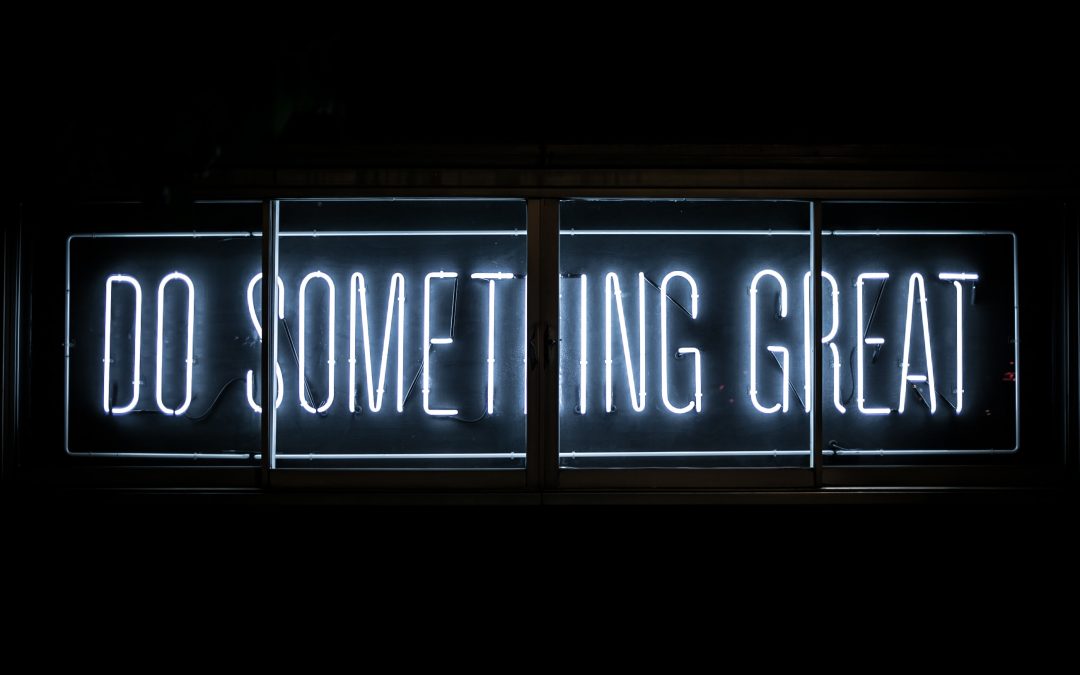
Balancing Freedom and Functionality: A Design Challenge
I want to share a short story with you folks as the basis for a little challenge I wanted to set. Let me start at the beginning.
A little while back *John Lea*, a member of the [Canonical Design Team](https://design.canonical.com/) filed [this bug](https://bugs.launchpad.net/ayatana-design/+bug/723831). The essence of the bug was grounded in one of the check-boxes on one of the pages of the Ubuntu installer:
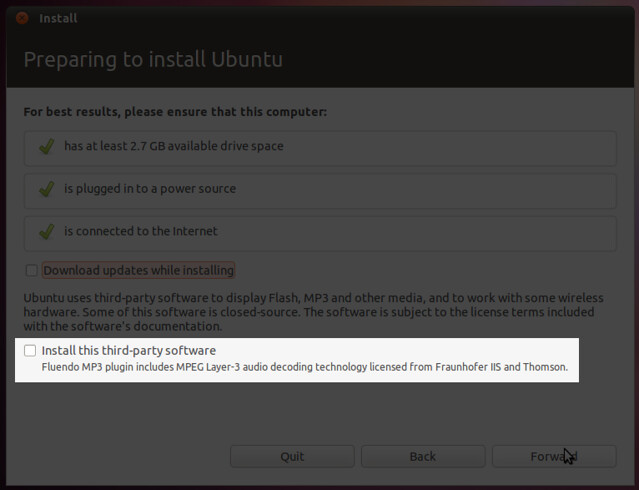
The *third-party software* check-box is a useful little feature in which some non-free components can be easily installed at the install time if the user so desires so. The check-box is designed to solve the problem where *things don’t work because there is no Open Source solution available*.
The bug was proposing that the check-box be ticked by default with the goal of ensuring that the user does not get a broken experience. When I first learned of the bug report this struck me that it had some legal and policy ramifications. In my mind this is not as simple as just changing a default – my take was that if the check-box was ticked by default it would be a definitive change in policy for the Ubuntu project – it would include non-free components by default (even if a user could un-check it to not have this components installed).
I felt my responsibility in this case was to ensure that due process and transparent published governance was used to respond to the bug. As such I asked the Ubuntu Technical Board to provide comment and input. They had their public meeting ([meeting log](https://irclogs.ubuntu.com/2011/03/24/%23ubuntu-meeting.html#t18:02)) and voted unanimously of 5-0 against the proposal in the bug report.
So that is the end of that, right?
Well, not really. I don’t want us to dismiss the rationale and ethos behind John’s original proposal in the bug report. John wants to solve the valuable and important problem of users installing Ubuntu and things not working, largely because a closed-source tool was not installed to bring that support in the absence of an Open Source solution. As we move to take Ubuntu to the masses we are going to face various cases in which we can’t offer an Open Source solution or the required quality in that Open Source solution for a given use case. Examples of this include Flash support, MP3 playback, some graphics drivers etc.
While a broken experience will not help us get over the chasm, I am also of the view that we should not sacrifice our values and philosophy; freedom is not a chore that restrains us from delivering a great user experience but a feature that we need to celebrate and encourage.
Thus we face the classic tale of Freedom vs. Functionality in the Open Source community. How do we deliver a great user experience, but one that maintains our commitment to freedom, particularly in those cases where no free solution exists?
I feel uncomfortable saying we need to significantly compromise on either side of the line. We should never compromise in delivering a wonderful user experience that just works, but we should also never compromise in delivering a Free Software Operating System. What’s more, I feel like we haven’t uncovered all of the options available in striking this balance in the installer.
It strikes me that our goal here is for the installer to understand what capabilities can be delivered on the user’s system with Free Software, but to inform the user of their options regarding non-free additions that may offer a better experience. Then the user gets to decide. If they are unwilling to use non-free software, they understand that some things may not work. If they are happy to use non-free elements, they can get that experience without jumping through hoops. All the while this would ensure that we are free by default but non-free functionality would only be a click away if the user chooses so. This way we empower the user.
It is with this that I wanted to present a challenge to our growing design community. I think this topic is a valuable one for us to discuss at our next [Ubuntu Developer Summit](https://uds.ubuntu.com) but thought it could be useful to open the discussion in the community now in preparation for the event. How do you feel we could best solve this? Anyone want to propose some mock-ups or put together a spec?
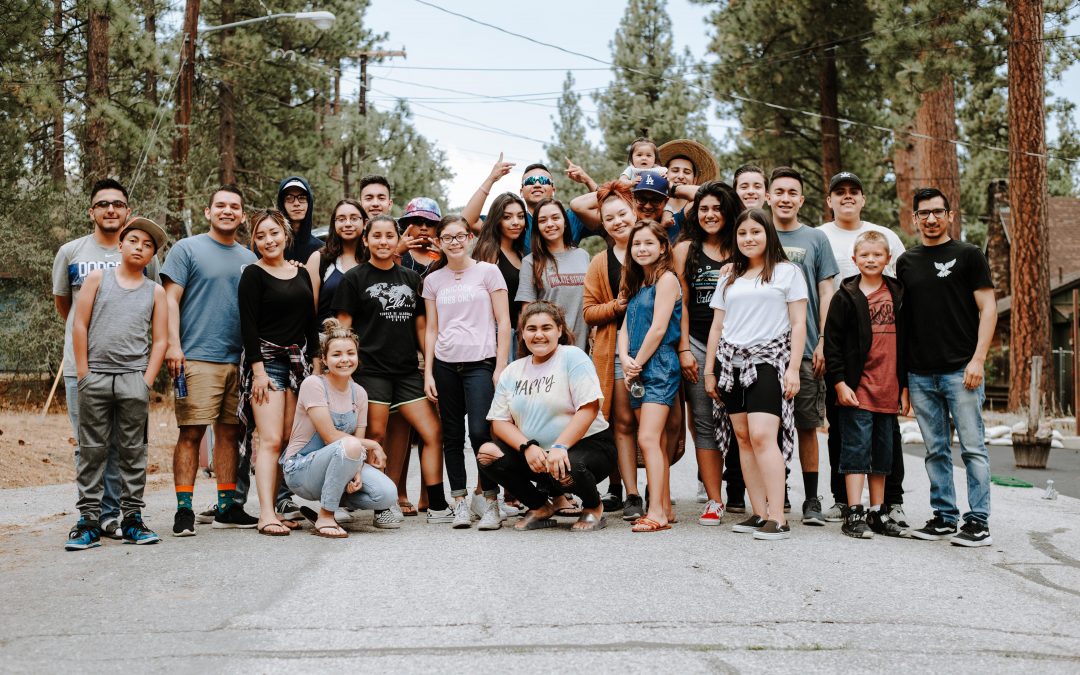
Ubuntu Global Jam: More Events, More Needed!
A great method of building our community up is to get people together face-to-face to work together, develop social bonds, and have fun. We see this at every Ubuntu Developer Summit; when we get contributors together, it helps seal a sense of camaraderie as we work and play together. All of this helps unite us all as we work to bring Free Software to the masses with Ubuntu.
With much of this in mind, in each cycle we organize the Ubuntu Global Jam in which our global LoCo Team Community organizes local events in which Ubuntu fans gets together to work and play together. Many of these events are loose and informal; just a collection of Ubuntu enthusiasts getting together to get to know each other, contribute in different ways (e.g. testing, creating advocacy materials, development, producing art etc), and have fun. I have organized a few events for the Ubuntu Global Jam in the past and it is great fun, and my goal here is to encourage you to do the same. 🙂
The next Ubuntu Global Jam takes place from 1st – 3rd April 2011 and here are some of the events that are taking place:
Africa
Egypt
- Ubuntu Global Jam – Cairo, Cairo – ubuntu-eg – Fri, 01 April
Asia
Afghanistan
- Afghan Ubuntu Jam, Herat – Afghanistan Ubuntu LoCo Team – Sun, 03 April
Europe
Denmark
- Global Jam i Købenahvn, København V – Ubuntu DK – Sat, 02 April
France
- Ubuntu Paris Jam, Paris – Ubuntu-fr – Sun, 03 April
Hungary
- Ubuntu Global Jam Budapest, Budapest – Ubuntu Hungary – Sat, 02 April
Slovenia
- Translation marathon, Ljubljana – Ubuntu Slovenian Team – Sat, 02 April
Spain
- Ubuntu Asturian Global Jam, Gijón / Xixón – Ubuntu Asturian Team – Fri, 01 April
- Ubuntu Global Jam, Les Borges Blanques – Catalan LoCo Team – Sat, 02 April
Switzerland
- Ubuntu Global Jam – Zurich, Zürich – Ubuntu Swiss Team – Fri, 01 April
United Kingdom
- Ubuntu UK Global Jam – Weybridge, Weybridge – Ubuntu UK – Sat, 02 April
- UCubed, Manchester – Ubuntu UK – Sat, 02 April
North America
Canada
- Global Jam in Kitchener, ON, Kitchener, Ontario – Ubuntu Canada – Sat, 02 April
United States
- Ubuntu California Global Jam – Walnut Creek, Walnut Creek – Ubuntu California – Fri, 01 April
- MA Narwhal Global Jam, Lexington – Ubuntu United States, Massachusetts – Sun, 03 April
- Ubuntu New York – Rochester – Global Jam, Rochester – Ubuntu New York State – Sat, 02 April
- Summit Jam, Lakeland – Florida LoCo Team – Fri, 01 April
- Ubuntu-Chicago – Ubuntu Global Jam, Chicago – Ubuntu Chicago LoCo Team – Sat, 02 April
- Ubuntu Global Jam – Michigan, Ann Arbor – Ubuntu-Michigan – Sun, 03 April
- Ubuntu Florida Global Jam (Melbourne), Melbourne – Florida LoCo Team – Sat, 02 April
- Ubuntu New York – Syracuse – Global Jam, Syracuse – Ubuntu New York State – Sat, 02 April
- Berkeley Ubuntu Global Jam, Berkeley – Ubuntu California – Sun, 03 April
- Ubuntu Texas Global Jam, Austin – Ubuntu Texas LoCo Team – Sat, 02 April
- NYC Meetup for Ubuntu Global Jam 11.04, New York – Ubuntu New York State – Sat, 02 April
South America
Venezuela
- Día del Usuario Ubuntu, Tucupita – Ubuntu Venezuela Team – Sat, 29 Jan.
- Dia del Usuario Ubuntu Caripito – Ubuntu Venezuela Team – Tue, 15 March
Although we have organized Ubuntu Global Jam events before, I believe that this one is even more important than ever. We are working hard to ship Unity in Ubuntu 11.04 and this is a great opportunity for us all to get together, test Natty, provide bug reports and feedback, write documentation, translate, and more! If we come together as a community we can deliver an incredible Ubuntu experience. 🙂
Organizing An Event
Everyone is welcome to organize an event! We would like to encourage all of you to put together an event in your area. 🙂
If you are not a member of a LoCo team, see the list of teams, pick your nearest team, click on it, and click the Join This Team link to join that team’s Launchpad group (you might need to wait to get approved to join). When you are a member of the team, you can add an event.
To add a team just follow these steps:
- First, decide a place where you want to hold the event. This can be as simple as a coffee shop that you decide to meet at (you don’t even need to neccessarily let the coffee shop know – just pick a place that everyone shows up to. Other good venues include university/school teaching rooms, local businesses, hotels etc.
- Now pick a date to hold the event on between the 1st-3rd April 2011. Most teams pick one day or evening.
- Next check the venues list and see if your venue is already in the database. If not, click Add New Venue to add the venue.
- Now click here to go and add your event.
- Finally, spread the word! Let Ubuntu users and Linux fans in your local area know, promote your event in your LoCo, at LUGs, put up posters in coffee shops, promote it on Twitter/identi.ca/Facebook etc.
When promoting your event or promoting existing events, be sure to use the #ugj hash tag. I look forward to seeing the photos and reports from the various events around the world!
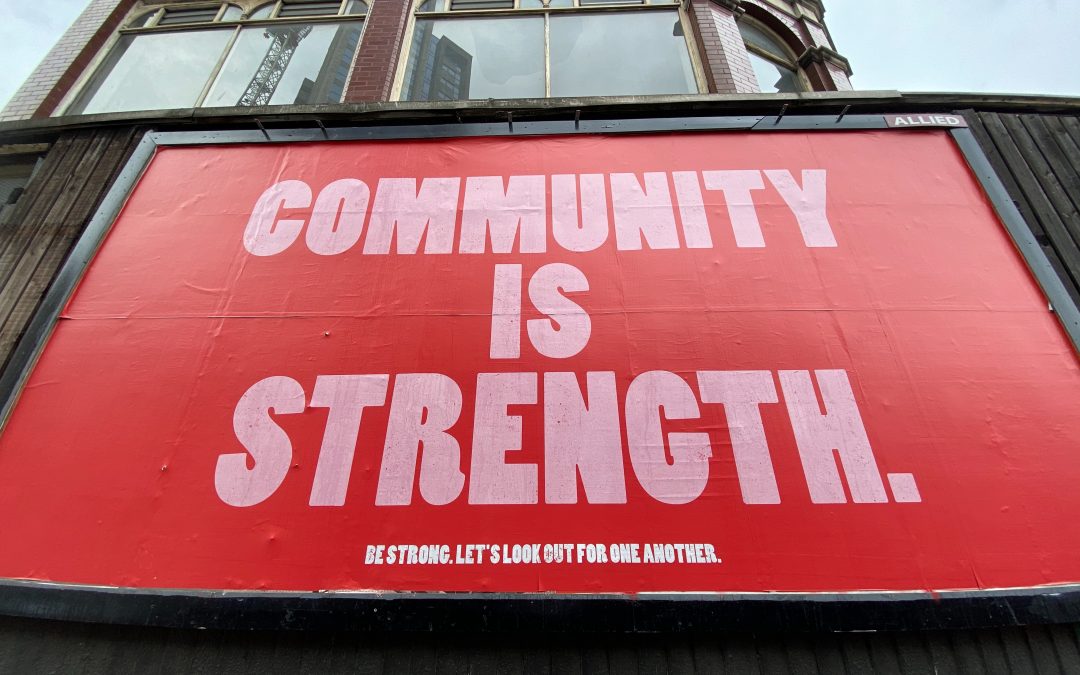
Japan Tsunami: What To Do If It Affects You
The best I can do right now to help with the Tsunami tragedy in Japan and affecting areas is just help spread information of what to do.
## Tsunami Arrival Times
If you are in an area affected [this page provides times of expected arrivals for the Tsunami](https://gist.github.com/865591)
## What To Do
From What to do if it affects you – key point is **get to higher ground**. Guidance from that page:
The Facts
- Tsunamis that strike coastal location in the Pacific Ocean Basin are
most always caused by earthquakes. These earthquakes might occur far away
or near where you live. - Some tsunamis can be very large. In coastal areas their height can
be as great as 30 feet or more (100 feet in extreme cases), and they can
move inland several hundred feet. - All low lying coastal areas can be struck by tsunamis.
- A tsunami consists of a series of waves. Often the first wave may not
be the largest. The danger from a tsunami can last for several hours after
the arrival of the first wave. - Tsunamis can move faster than a person can run.
- Sometimes a tsunami causes the water near shore to recede, exposing
the ocean floor. The force of some tsunamis is enormous. Large rocks weighing
several tons along with boats and other debris can be moved inland hundreds
of feet by the tsunami wave activity. Homes and other buildings are destroyed.
All this material and water move with great force and can kill or injure
people. - Tsunamis can occur at any time, day or night.
- Tsunamis can travel up rivers and streams that lead to the ocean.
What You Should Do
Be aware of tsunami facts. This knowledge could save your life! Share
this knowledge with your relatives and friends. It could save their lives!
- If you are in school and you hear there is a tsunami warning, you should
follow the advice of teachers and other school personnel. - If you are at home and hear there is a tsunami warning, you should
make sure you entire family is aware of the warning. Your family should
evacuate your house if you live in a tsunami evacuation. Move in an orderly,
calm and safe manner to the evacuation site or to any safe place outside
your evacuation zone. Follow the advice of local emergency and law enforcement
authorities. - If you are at the beach or near the ocean and you feel the earth shake,
move immediately to higher ground. DO NOT wait for a tsunami warning to
be announced. Stay away from rivers and streams that lead to the ocean
as you would stay away from the beach and ocean if there is a tsunami.
A regional tsunami from a local earthquake could strike some areas before
a tsunami warning could be announced. - Tsunamis generated in distant locations will generally give people
enough time to move to higher ground. For locally generated tsunamis, where
you might feel the ground shake, you may only have a few minutes to move
to higher ground. - High, multi-story, reinforced concrete hotels are located in many low-lying
coastal areas. The upper floors of these hotels can provide a safe place
to find refuge should there be a tsunami warning and you cannot move quickly
inland to higher ground. Local Civil Defense procedures may, however, not
allow this type of evacuation in your area. Homes and small buildings located
in low lying coastal areas are not designed to withstand tsunami impacts.
Do not stay in these structures should there be a tsunami warning. - Offshore reefs and shallow areas may help break the force of tsunami
waves, but large and dangerous waves can still be threat to coastal residents
in these areas. Staying away fro all low-lying coastal areas is the safest
advice when there is a tsunami warning.
If You Are on a Boat or Ship
- Since tsunami wave activity is imperceptible in the open ocean, do
not return to port if you are at sea and a tsunami warning has been issued
for your area. Tsunamis can cause rapid changes in water level and unpredictable
dangerous currents in harbors and ports. - If there is time to move your boat or ship from port to deep water
(after you know a tsunami warning has been issued), you should weigh the
following considerations:- Most large harbors and ports are under the control of a harbor authority
and/or a vessel traffic system. These authorities direct operations during
periods of increased readiness (should a tsunami be expected), including
the forced movement of vessels if deemed necessary. Keep in contact with
the authorities should a forced movement of vessels be directed. - Smaller ports may not be under the control of a harbor authority. If
you are aware there is a tsunami warning and you have time to move your
vessel to deep water, then you may want to do so in an orderly manner,
in consideration of other vessels. Owners of small boats may find it safest
to leave their boat at the pier and physically move to higher ground, particularly
in the event of a locally generated tsunami. Concurrent severe weather
conditions (rough seas outside of safe harbor) could present a greater
hazardous situation to small boats, so physically moving yourself to higher
ground may be the only option. - Damaging wave activity and unpredictable currents can effect harbors
for a period of time following the initial tsunami impact on the coast.
Contact the harbor authority before returning to port making sure to verify
that conditions in the harbor are safe for navigation and berthing.
- Most large harbors and ports are under the control of a harbor authority
As dangerous as tsunamis are, they do not happen very often. You should
not let this natural hazard diminish your enjoyment of the beach and ocean.
But, if you think a tsunami may be coming, the ground shakes under your
feet or you hear there is a warning, tell your relatives and friends, and
move quickly to higher ground.
**If you have better resources, please post a comment. Please everyone spread this information – if it helps save one life, it is worth it.**

Banshee In Natty To Ship Multiple Stores And Contribute To GNOME Foundation
Recently the Canonical Online Services team, led by Cristian Parrino, has been in discussions with the Banshee project to coordinate a suitable revenue share for the built-in Amazon store. Unfortunately, there were a few crossed wires, but a call today helped to clarify the position.
For clarity, Cristian wanted to pass on the plan for Ubuntu 11.04 to the Ubuntu community, so here is a copy of the email he shared with the Banshee core developers after the call today:
Thanks again for the call, your participation and understanding is very much appreciated.
As discussed, I wanted to follow up with the plan I outlined on the call – and reiterate my apologies and responsibility for a situation that has resulted in the worst outcome for everyone, including putting the Banshee team in an awkward position. As such:
- In Ubuntu 11.04, Banshee will have both the AmazonMP3 and Ubuntu One music stores turned on by default.
- We will contribute 25% of the revenue from the AmazonMP3 store to the GNOME Foundation.
- We will also also start contributing 25% of revenue from the Ubuntu One Music Store on both Banshee and Rhythmbox, to the GNOME Foundation.
Recognizing that it is important to not only bring choice to Ubuntu users, but to also generate revenue to continue our investment in Ubuntu, and to ensure we can contribute effectively to the GNOME Foundation – we believe this plan fairly addresses the interests of all parties.
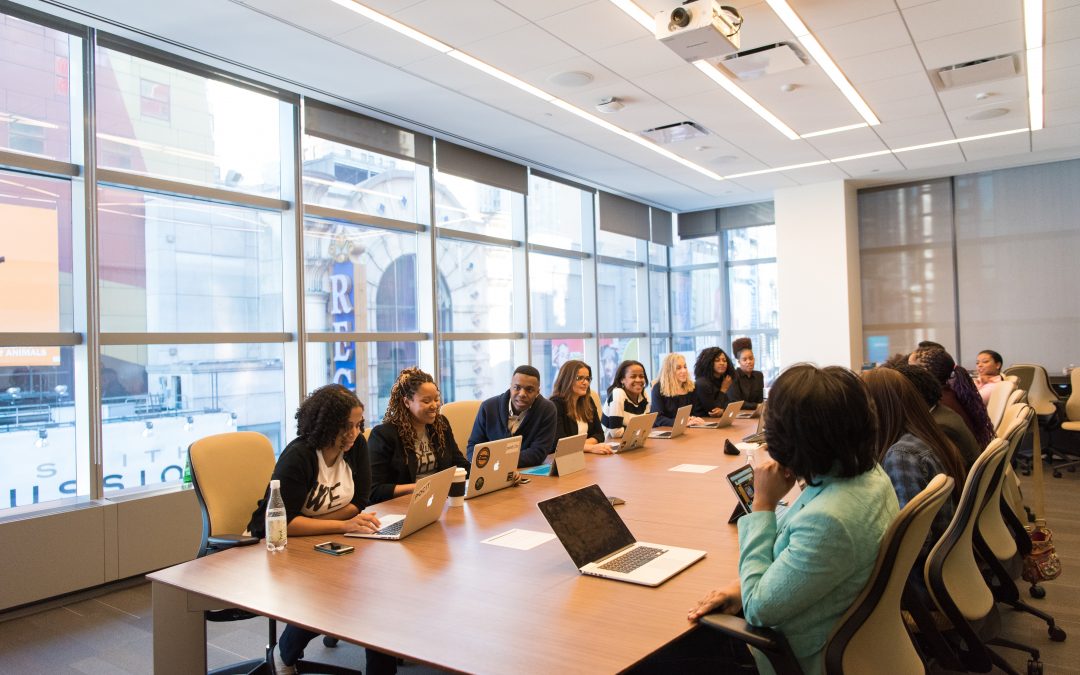
Ubuntu Developer Summit Sponsorship Now Open!

The [Ubuntu Developer Summit](https://uds.ubuntu.com/) (UDS) is the most important event in the Ubuntu calendar. It is where we get together to discuss, design, and plan the next version of Ubuntu; in this case the Ubuntu 11.10 release.
The next UDS takes place at **Corinthia Grand Hotel, Budapest, Hungary** from the **9th – 13th May 2011**. You can find out more about why UDS is interesting from the perspective of a [member of the community](https://uds.ubuntu.com/participate/community), an [upstream contributor](https://uds.ubuntu.com/participate/upstreams), and a [vendor](https://uds.ubuntu.com/participate/vendors). We also welcome everyone to [participate remotely](https://uds.ubuntu.com/participate/remote) if you can’t attend the event in person. More more details on how to get there, see [this page](https://uds.ubuntu.com/travel/).
At the heart of a great UDS is a diverse group of attendees who can bring their experience and expertise to the discussions. You don’t have to be technical, or be a programmer or packager to attend – UDS is open to everyone (including non-Ubuntu folks) and free to attend. We encourage everyone with an interest in Ubuntu to attend.
## Sponsorship
For every UDS Canonical sponsors the hotel and accommodation of a set of community members to ensure they are free to contribute and bring value to the discussions. We have a limited budget so we can’t sponsor everyone, but we are always keen to have a capable and diverse group to sponsor:
* We strive to support community members who are actively involved in Ubuntu and who are providing *significant and sustained* contributions to the Ubuntu project.
* We always welcome Upstream contributors who are bring value to Ubuntu indirectly via active participation in their upstream project, but who are keen to see quality support for that upstream in Ubuntu.
* Contributors are willing to actively participate not only throughout the full Ubuntu Developer Summit week, but also following with active contributions throughout the release cycle.
* We are always keen to welcome members of the community who have never been to UDS before and are keen to participate and experience the event.
* You don’t have to provide technical contributions to apply – if you have participated in the areas of advocacy, documentation, testing, art, design etc, you are encouraged to apply.
* UDS is an event that encourages diversity – we welcome everyone to apply for sponsorship, irrespective of gender, race, impairment, technical expertise, or other factors.
If you are participating in the Ubuntu community, we would love you to apply for sponsorship. This is how it works:
1. You can apply for sponsorship [by following these instructions](https://uds.ubuntu.com/participate/sponsorship/). Apologies for the different forms you need to fill in – we are going to consolidate these forms at the next UDS. The deadline for submissions is **29th March 2011** so be sure to get yours in!
2. When the deadline is reached we will assess the applications and finalize who we will be able to sponsor.
3. You will then receive an email outlining whether we can sponsor you or not.
Simple! I look forward to seeing your applications, and seeing many of you in Budapest!
## Building A Diverse Ubuntu Developer Summit
For the this UDS we have set out with a goal to promote an even more diverse and welcoming environment. We have been working with the [Ubuntu Women](https://ubuntu-women.org/) and [Ubuntu Accessibility](https://wiki.ubuntu.com/Accessibility) teams to optimize UDS as a great example of *diversity done right* at an event.
As part of this, the *Ubuntu Women* team are engaging in an [outreach campaign to encourage more women to apply for sponsorship at UDS](https://wiki.ubuntu-women.org/UDS). We would like to see a greater attendance and participation of women at UDS (not only sponsored, but local attendees too), and the *Ubuntu Women* team will be reaching out to encourage women to apply for sponsorship and attend.
*As part of this work, the Ubuntu Women team are providing mentoring, help and assistance for women who want to apply for sponsorship and ensure they submit the best sponsorship application that they can. To find out more how to use this service, [click here](https://wiki.ubuntu-women.org/UDS)*.
Thanks also to the *Ubuntu Accessibility* team for helping us to ensure accessibility needs are factored into the many different elements of the event.

Ubuntu Global Jam: First Update
I am delighted that we are already starting to see some [Ubuntu Global Jam](https://archivedblog.jonobacon.com/2011/02/15/ubuntu-global-jam-call-for-events/) events forming and taking place at different points between **1st – 3rd April 2010**:
* Ubuntu Paris Jam, Paris – Ubuntu-fr
* Translation marathon, Ljubljana – Ubuntu Slovenian Team
* Ubuntu Global Jam, Les Borges Blanques – Catalan LoCo Team
* Ubuntu UK Global Jam – Weybridge, Weybridge – Ubuntu UK
* Ubuntu California Global Jam – Walnut Creek – Ubuntu California
* Día del Usuario Ubuntu, Tucupita – Ubuntu Venezuela Team
Nice! 🙂
You can see the [full list of events](https://loco.ubuntu.com/events/global/567/detail/), and I would like to encourage all of you to organize an event near you! For help on organizing a jam event, see [this guide](https://wiki.ubuntu.com/Jams) and be sure to add it to [loco.ubuntu.com](https://loco.ubuntu.com/) by using [this page](https://loco.ubuntu.com/events/team/add/?global_event_id=567) (remember, to add an event you must be a member of that LoCo team in Launchpad).
If you have any questions, be sure to [join #ubuntu-locoteams on freenode IRC!](https://loco.ubuntu.com/irc/)
Finally, I discussed the Ubuntu Global Jam and how to organize an event, and why this Global Jam is particularly important at the beginning of [today’s videocast](https://www.ustream.tv/recorded/12734895). Check it out! 🙂

Live Ubuntu Video Q+A: Every Wednesday
For quite some time now I have been running a [live weekly video Q+A session](https://www.ustream.tv/channel/at-home-with-jono-bacon) in which I invite the Ubuntu community to join me and ask questions about the project, seek clarification on Ubuntu decisions, and more.
A few people had mentioned that they had not heard of the sessions until too late, so I just wanted to remind people when the sessions are. They take place at **11am Pacific / 2pm Eastern / 7pm Eastern** on [this website](https://www.ustream.tv/channel/at-home-with-jono-bacon). If you want to ask questions be sure to register with ustream first, you need to log in to type your question.
I look forward to seeing you at the casts!
Also, don’t forget that every Friday we have a guest Q+A session on IRC. The next one is with *Allison Randal, Ubuntu Technical Architect* on **Fri 18th Feb 2011** at **5.30pm UTC**. Find out more and see the up-coming schedule [here](https://wiki.ubuntu.com/WeeklyQandA).

Ubuntu Global Jam: Call For Events!

Every cycle we organize the [Ubuntu Global Jam](https://wiki.ubuntu.com/UbuntuGlobalJam); an event in which our global community gets together to help make Ubuntu better. The *Ubuntu Global Jam* is a great opportunity to get together and meet other Ubuntu fans and contributors, make new friends in your area, and help to make the next Ubuntu release a really rocking release!
**Never before has the Ubuntu Global Jam been so important!** In this cycle we are shipping Unity as the new desktop interface, and we are going to be working hard together to ensure that as many Unity bugs are squeezed out as possible. This is a great chance to come along and help test Unity, report bugs, [fix bugs](https://wiki.ubuntu.com/Unity/Bitesize), triage problems, write documentation, help advocate Ubuntu in your area, and otherwise make a real difference that will benefit others. Together we can make Ubuntu 11.04 the best Ubuntu release yet!
So, I just wanted to give everyone a heads up that the date of the Ubuntu Global Jam is **1st – 3rd April 2011**. I am really keen that everyone has as much notice as possible to get your events ready! Laura has added the [Ubuntu Global Jam in the LoCo Directory](https://loco.ubuntu.com/events/global/567/detail/) so feel free to go and add your events there! We will also be having some tutorial sessions about how to organize events soon! When you add an event, but sure to Tweet/Dent/Facebook it and use the `#ugj`, `#ubuntu`, and `#locoteams` tags so others can see them!
To get the ball rolling, I am going to be dedicating a chunk of [my videocast on Wednesday at 11am Pacific / 2pm Eastern / 7pm UTC](https://www.ustream.tv/channel/at-home-with-jono-bacon) to discussing how to get involved organizing an event, and answering questions about running events. Be there and join in the fun!
This is going to be an awesome global event, and *you* can help this rock! For more detail of how to organize an event, see [this guide](https://wiki.ubuntu.com/UbuntuGlobalJam).


